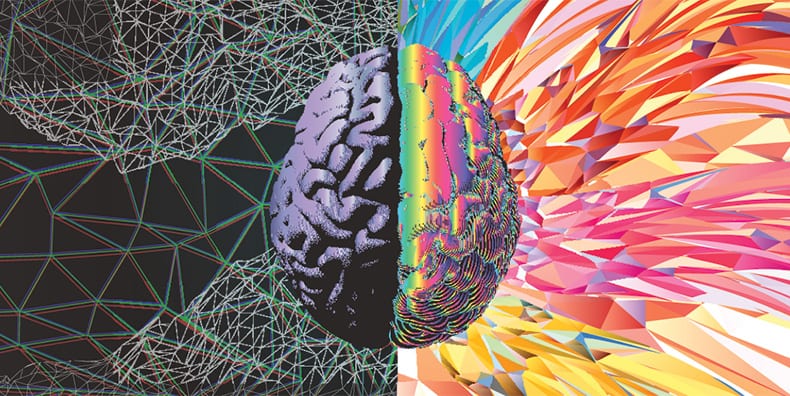The relationship between bipolar disorder and creativity has been a subject of interest and debate for many years. Some studies and historical examples suggest a potential connection between mood disorders, particularly bipolar disorder, and heightened creative abilities. However, it’s important to approach this topic with nuance and recognize that not everyone with bipolar disorder is exceptionally creative, nor is every creative individual affected by bipolar disorder.
Here are some aspects to consider when examining the link between bipolar disorder and creativity:
- Historical and Artistic Figures:
- Famous Examples: Numerous renowned artists, writers, musicians, and other creative individuals have been reported to have had bipolar disorder. Examples include Vincent van Gogh, Virginia Woolf, and Ludwig van Beethoven.
- Selective Reporting: The prominence of these cases in the media and historical records might create a perception of a stronger link between bipolar disorder and creativity than what exists on a broader scale.
- Mood and Cognitive Processes:
- Enhanced Creativity during Mania: Some individuals with bipolar disorder may experience increased energy, heightened focus, and a surge in creative ideas during manic or hypomanic episodes.
- Depressive Episodes: On the other hand, depressive episodes can impede creative thinking, motivation, and overall productivity.
- Divergent Thinking and Risk-Taking:
- Divergent Thinking: Bipolar individuals, particularly during manic phases, may exhibit enhanced divergent thinking – the ability to generate a variety of ideas. This cognitive flexibility could contribute to creative problem-solving.
- Risk-Taking Behavior: Both manic and hypomanic states are associated with increased risk-taking behavior, which may manifest in unconventional and innovative artistic expressions.
- Neurobiological Factors:
- Neurotransmitter Imbalances: Bipolar disorder is associated with imbalances in neurotransmitters like dopamine and serotonin. These imbalances could influence cognitive processes and creative thinking.
- Brain Structure and Function: Some studies suggest differences in brain structure and function in individuals with bipolar disorder, potentially influencing creative abilities.
- Challenges and Limitations:
- Functional Impairment: While manic or hypomanic states may enhance creative thinking, the associated symptoms, such as impulsivity and impaired judgment, can lead to dysfunctional or non-productive outcomes.
- Debilitating Effects of Depression: Depressive episodes can severely impair motivation, focus, and the ability to engage in creative activities.
- Individual Differences:
- Not Universally Applicable: Creativity is a complex trait influenced by various factors, including genetics, environment, and individual differences. Not everyone with bipolar disorder is creative, and not all creative individuals have bipolar disorder.
- Other Mental Health Factors: Other mental health conditions, such as depression or anxiety, can also influence creativity.
- Treatment Challenges:
- Medication Effects: Some medications prescribed for bipolar disorder may stabilize mood but potentially affect creative thinking. Finding a balance between symptom management and creative expression can be a challenge.
- Striking a Balance: Balancing the therapeutic aspects of treatment with the desire to maintain one’s creative spark requires collaboration between individuals with bipolar disorder and their healthcare providers.
- Ethical Considerations:
- Romanticizing Mental Illness: Romanticizing mental illness, including bipolar disorder, can perpetuate harmful stereotypes. It’s important to avoid glorifying the challenges faced by individuals with bipolar disorder for the sake of creativity.
In summary, while there may be observed links between bipolar disorder and creativity in some individuals, it is crucial to approach this topic with caution and avoid making sweeping generalizations. Creativity is a multifaceted trait influenced by various factors, and the relationship between bipolar disorder and creativity is complex and not universally applicable. For individuals with bipolar disorder, seeking a balance between managing their mental health and nurturing their creative pursuits is essential, and collaboration with mental health professionals can provide valuable guidance.

